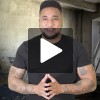7 Simple Steps to the Best Checking Account
- Details
- Written by Will from Holland
- Category: Articles

Life is a lot easier if you have a checking account. You can store your money, you get a debit card that is linked to your checking account, to be able to go online and make purchases, and you can even pay someone with a check if you don't have cash on you.
So, how do you pick the right banking partner?
But here's the problem: Hundreds of financial institutions want you to open your first checking account with them. Some will try to rip you off, while others will do their best to help you.
So, how do you pick the right banking partner?
By doing two things: Researching your options and asking for help. Lucky for you, you came to the right place for both!
For now, we recommend only one banking relationship. If this is your first account, a lot of this might seem overwhelming, especially because you want to do things right. So, why make it more confusing by having to deal with more than one financial institution?
How to Get Your First Checking Account
Use these tips to get your first checking account right:
Only consider opening a checking account if you're ready to be really responsible with it! Simply overdrafting with your debit card (spending more than you have in your account) on your first account can wreck your credit—and can lead to your account being closed. Overdraft too many times, and you could even be blacklisted from opening a checking account for a year or two!
Don't open an account based on gifts! Did you know that 75% of people that start a banking relationship, stay with that institution for life? Many financial institutions know this, and they are going to offer you a cool gadget if you open your account with them. Pick the institution that is most reasonable and cost effective, and if that institution also gives you gifts, then you've hit a home run!
Decide if you're going to open your checking account with a bank or a credit union. Most of the time, getting your checking account at a credit union is your best and cheapest bet. Since they are member-owned and not-for-profit, most credit unions usually give their members the most for their money. But credit unions aren't perfect, and not all are alike, so do your homework!
Get your first account at a local institution. Tons of companies on the web, that aren't physically close to you, are going to try to convince you to bank with them... Forget it. For your first account, starting doing business with an institution that has an office close to you. At a local credit union or bank you've got someone to talk to face-to-face, to help you open your account and to help you with a problem or a question. Also, building a long-term banking relationship will make it easier for you to get a credit card and other types of loans later on.
Pick a firm that doesn't nickel and dime you to death. While you're doing your research we recommend that you find the answers to the following questions to help you make your decision. Will your checking account be free? Will your checking account earn you interest? Does the company offer a lot of ATMs that you can use, for free? What if you move away? Does it offer free ATMs nationwide? What do they charge for bounced checks and/or overdraft protection?
Make sure your checking account has a savings account attached to it. Put money in that savings account every month. Put 10% of every paycheck in there every month, minimum, and don't touch it. Your goal with this account should be to keep at least 3 months' worth of (emergency) expenses in there.
Put at least a hundred dollars in your account, and keep it there—always. Why? Life can be hectic, and sometimes we forget how much we have in our accounts—or what is being deducted from that account. That's how checks get bounced, and with all of the fees associated with bouncing checks and overdraft protection, you cannot afford to bounce a check.
If you really want to be sure you have all the skills to handle your checking account, work through our online interactive FoolProof Solo modules!
- Road Trip: Debit cards, mobile banking, you'll know it all!
- Junk in the Trunk: Interactive check writing, account balancing, all that type of fun stuff.
- Burning Money: Work less and make more, really.
If you treat it right, your checking account can be a great tool to use towards gaining financial freedom. But before you choose which checking account you want to open and where, make sure you've used FoolProof's motto to guide you: Use caution. Question sellers. Do your research.
Cheers, Will












